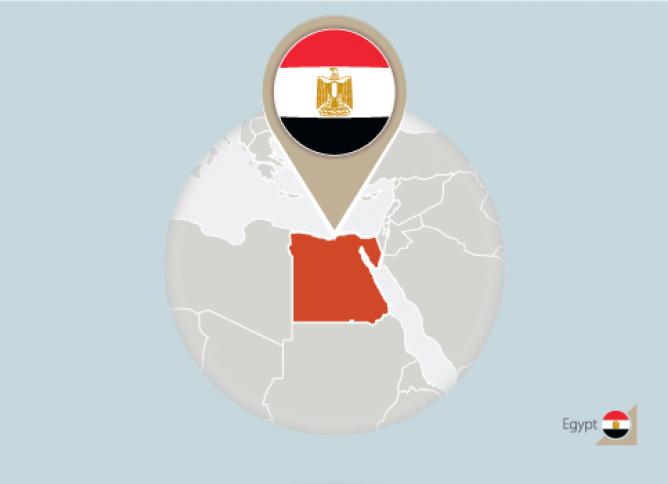Egypt

Project and Country Background
Egypt has a population of 83.4 million people; 24.4 percent of the adult population and 5.1 percent of the youth population smoke tobacco products.1 An estimated 69,344 people in Egypt die each year from diseases caused by smoking.2
TPackSS worked with in-country collaborators to purchase cigarettes in three major cities: Cairo, Alexandria and Mansoura. Within each city, packs were collected from a sample of 12 economically and socially diverse neighborhoods. Data collectors purchased one of every unique cigarette pack available from vendors selected in each neighborhood. From November 26 to December 6, 2013, data collectors purchased 58 unique cigarette packs.
The tobacco packaging and labeling requirements in effect at the time of data collection were used to assess each tobacco pack’s compliance with the requirements.
Suggested Citation for Information on this Page: Tobacco Pack Surveillance System (TPackSS). Egypt: Project and Country Background. Baltimore, MD: Johns Hopkins Bloomberg School of Public Health. http://globaltobaccocontrol.org/tpackss/country/egypt [Insert Last Updated Date].
Browse packs from Egypt
Egypt
2013
Egypt
2013
Egypt
2013
Egypt
2013
Egypt
2013
Egypt
2013
Egypt
2013
Egypt
2013
Highlights of Packaging and Labeling Requirements by Data Collection Year
| Data collection dates | Type of warning | Warning label size and layout | Number of warnings to be displayed | Rotation | Rules for misleading descriptors | Other warning label requirements considered during coding |
|---|---|---|---|---|---|---|
|
Nov. 26 to Dec. 6, 2013 [58 unique packs] |
Picture and Text |
50% of front, 50% of back
|
4 |
All labels displayed concurrently and are intended to be changed every 6 months |
Some restrictions |
Warning text printed on black background and smoking quit line on a yellow background. Requires the quantity of tar and nicotine be displayed. |
Tobacco packaging and labeling in Egypt is regulated by Law No. 52 of 1981 Concerning the Prevention of the Adverse Effects of Tobacco. Law No. 85 of 2002, Law No. 154 of 2007, Decree No. 443 of 2008 and Executive Bylaw of Law No. 52 of 1981 amend or build on Law No. 52 of 1981. In addition, there are many other laws and decrees that supplement Law No. 52 of 1981 and the legislation that followed.3
